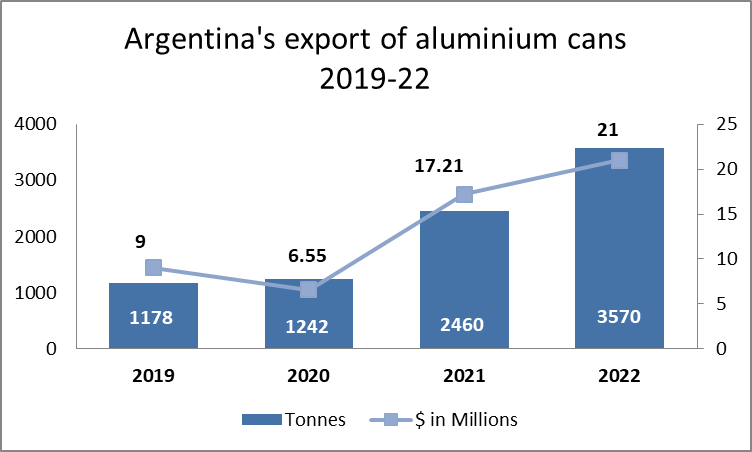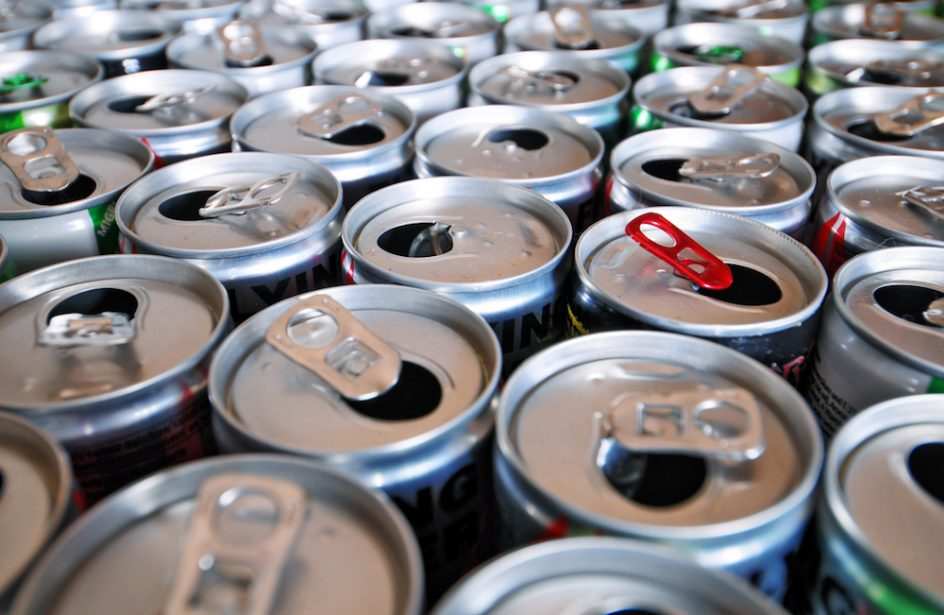

Traditionally, aluminium cans have been used for beverages, but cans are also popular for storing food, oils, chemicals, and other liquids. In addition to being more malleable and lighter than steel cans (aluminium is one-third as heavy as steel), aluminium cans don't rust or corrode.

In Argentina, the major industries consist of food processing and beverage, automobile production, textile production, energy production, and mining. The growth in the Argentine beverage sector has also given the cans manufacturing segment a push, which has witnessed a rise in the export demand also.
The eighth-largest country in the world, Argentina exported 4880 tonnes of aluminium cans in 2019-21, attracting a revenue inflow of around $32.76 million from the export.

In 2019, Argentina recorded 1178 tonnes of aluminium cans export, incurring revenue of $9 million, whereas, in 2020, the export reflected a growth of 5.43%, as the export volume inclined to 1242 tonnes, while dropped to $6.55 million.
Argentina’s export of aluminium cans in 2021 documented export growth of 98.06%, as the export volume ascended to 2460 tonnes and revenue generation soared to $17.21 million.
The export of aluminium cans in 2022 is analysed with further growth of 45.12%, as the export volume is predicted to climb 3570 tonnes and earnings to scale up at $21 million.
The major trading nations for Argentina’s export of aluminium scrap are Brazil, Colombia, the USA, etc.
Responses








